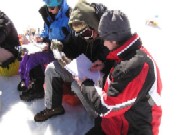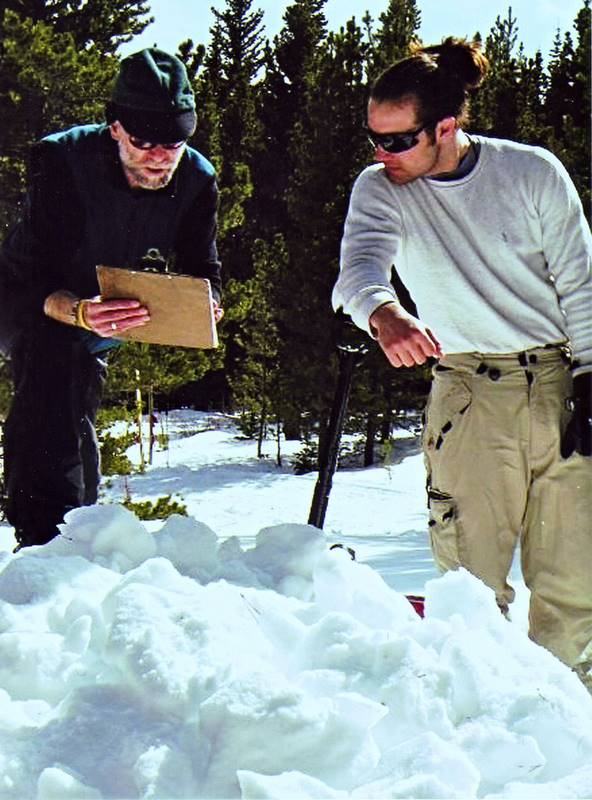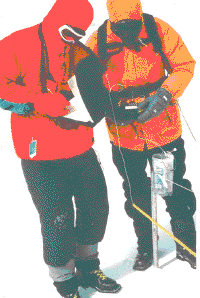Course Registration
Credits:
3
- EBIO 4100, Sec 570
-
Open to students from all colleges and universities
Tuition & Fees:
TBD –
-
includes lodging
- no
additional tuition for out-of-state
-
meals to be arranged separately (see pre-course
organizational meeting)
-
sorry, no pets
Registration
for the Class
To
register for a class sign up like you would for any
other course. Go to https://classes.colorado.edu/
and search for the course name. Add the class
to your cart and proceed to check out.
Enrollment
is limited to 15
- MRS will
maintain a wait list
- Cancellations
-
- See the
MRS registration site regarding refund policy:
Registration
(with balance of tuition payment due) – 1st Weds
lecture
Financial
Aid -
- While MRS
does not offer financial aid for its courses –
- If you have
financial aid through CU, you can use it to cover
for course costs. Contact the Station to make
necessary arrangements (email mrs@colorado.edu,
phone 303 492-8842).
- If you are
at another institution, please check with your
financial aid office.
Textbooks
Required texts:
There are 2 textbooks for the
course:
1) Life in the Cold. An Introduction to Winter
Ecology, by Peter Marchand. 4th ed.
2014. University Press of New England. ~$30. ISBN - (print) 9781611684285,
(ebook) 9781611685060
2) Winter.
An Ecological Handbook, by J.C. Halfpenny
and R.D. Ozanne. 1989, 2021 reprint. ~$20
ISBN 9798726728827
- These are available
from the CU Bookstore (UMC),
CU
Libraries, and other sources - details are in the
table that follows.
- There are also
"reserve copies" on hand in the Lodge at MRS.
See also Suggested outside readings below.
1) Life in the
Cold. An Introduction to Winter Ecology, by Peter
Marchand. 4th ed. 2014.
- Bookstores - CU
Bookstore, UMC
- CU
Libraries - ebook and
Reserve copies -
Ask
for hardcopy
materials at
the East
Side Service
Desk, Norlin
Library
- eBook
version: Call#
QH543.2 .M37
2013 or QH543.2
.M37 2013eb
- Also
look for in other libraries with the
ebook on Prospector, and which you might
have access to
- Reserve copies
- at Norlin: Call#
QH543.2 .M37 2013
|
2) Winter.
An Ecological Handbook, by J.C. Halfpenny
and R.D. Ozanne. 1989, 2021
reprint.
- Bookstores - CU
Bookstore, UMC
- CU
Libraries - ebook and Reserve copies -
Ask for hardcopy materials at the East Side Service
Desk, Norlin
Library
- eBook
version: Call#
QB637.8
.H35 1989eb
- Reserve copies
- at Norlin: Call#s QB637.8 .H35
1989
|
Suggested outside
readings (not assigned):
- Winter World.
The Ingenuity of Animal Survival, by Bernd
Heinrich. 2003 (Ecco paperback edition 2004).
HarperCollins. $10-20. ISBN-13: 978-0061129070
- Autumn. A
Season of Change, by Peter Marchand.
2000. University Press of New England.
$10-20. ISBN-13: 978-0874518702
|
“The instruction we find in books
is like fire. We fetch it from our
neighbours,
kindle it at home, communicate it to others,
and it becomes the property of all.”
- Voltaire
|
Getting There:
Directions to
the MRS from Boulder:  Map
– pdf file
(60k) Map
– pdf file
(60k)
Please
arrive by 8a, class starts at 8:30. The drive
under good conditions generally takes 45 min from
downtown Boulder. I recommend planning on an hour
the first time around and given road conditions.
Staying at the Lodge:
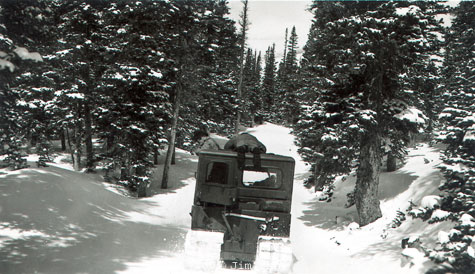
Winter
trek - 1950/60's?. Photo: (c) Jim
Snow.
(original source
http://instaar.colorado.edu/meetings/50th_anniv/photo_album/SnowJames/index.html
- link broken)
|
Course Format
MRS field courses –
- MRS field
courses are designed to provide students a hands on
field research experience.
- Each course
emphasizes informal interaction with the instructors
and fellow students.
- Course
credit is readily transferable to other
institutions.
Winter Ecology
–
- Format:
Lectures, Field/Lab work, and Evening Programs with
Guest Speakers, with an emphasis on hands-on
experience
- Course
meets:
- CU's
ENVS's Field Course & Application
requirements
- CU's
EBIO's 4000 requirement
- Prerequisite:
- 1 year of
college general biology, physical geography, or
environmental science
- Class size:
10-15 students
Grading
Evaluation is
based on: Field exercises,
Individual project, Lab & field final exam,
Participation, and Field journal.
Grading
breakdown:
- Field
exercises 30%
- Individual
project 30%
- Guidelines
for Proposals, Draft Reports, Presentations
- Previous Years'
Projects Index - See Canvas for
project PowerPoints
- Grading
Criteria for Projects
- Project
Deadlines
Quick Reference
| Deadline |
2024 Due Date |
Due Date Relative to
Weekly Schedule |
Guidelines, Resources |
| Initial Idea |
Sun -- 28
Jan
|
1st Sun |
- Weekly
Schedules and Readings
|
| Proposal and
Key Refs due |
Sun -- 11
Feb
|
3rd Sunday |
|
| Draft
Write-up due |
Mon -- 26
Feb
|
Monday of
Week 5
|
|
| Oral
Presentations |
Sat
--
2 March
|
6th
Sat (last day of class) |
|
- Exam 30%
- Journal 5% -
journal of personal observations in the field,
developing a "sense of place."
- Overall class
participation 5%
Due to
scheduling constraints, there'll be no opportunity to
make-up parts of the course including the exam
Final grades
assigned as follows: A 90-100%, B 80-89%, C
70-79%, D 50-69%, F <50%
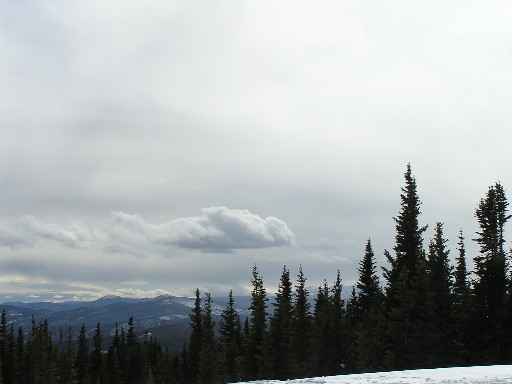
(photo:
Alan Rosacker, Winter Ecology 2005)
Other Logistics:
See information
on Health matters and
Personal equipment
in preparation for the class's field work. Also see
other sections in 'What to bring'
for information on what's needed for staying at the
Lodge, food, and computer facilities.
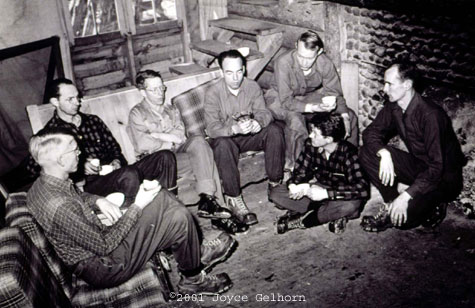
CU
Winter Ecology with John Marr, 1946.
Photo: (c) Joyce Gelhorn.
(original source:
http://instaar.colorado.edu/meetings/50th_anniv/photo_album/GelhornJoyce/IMAGE09_JPG.html
- link broken)
|

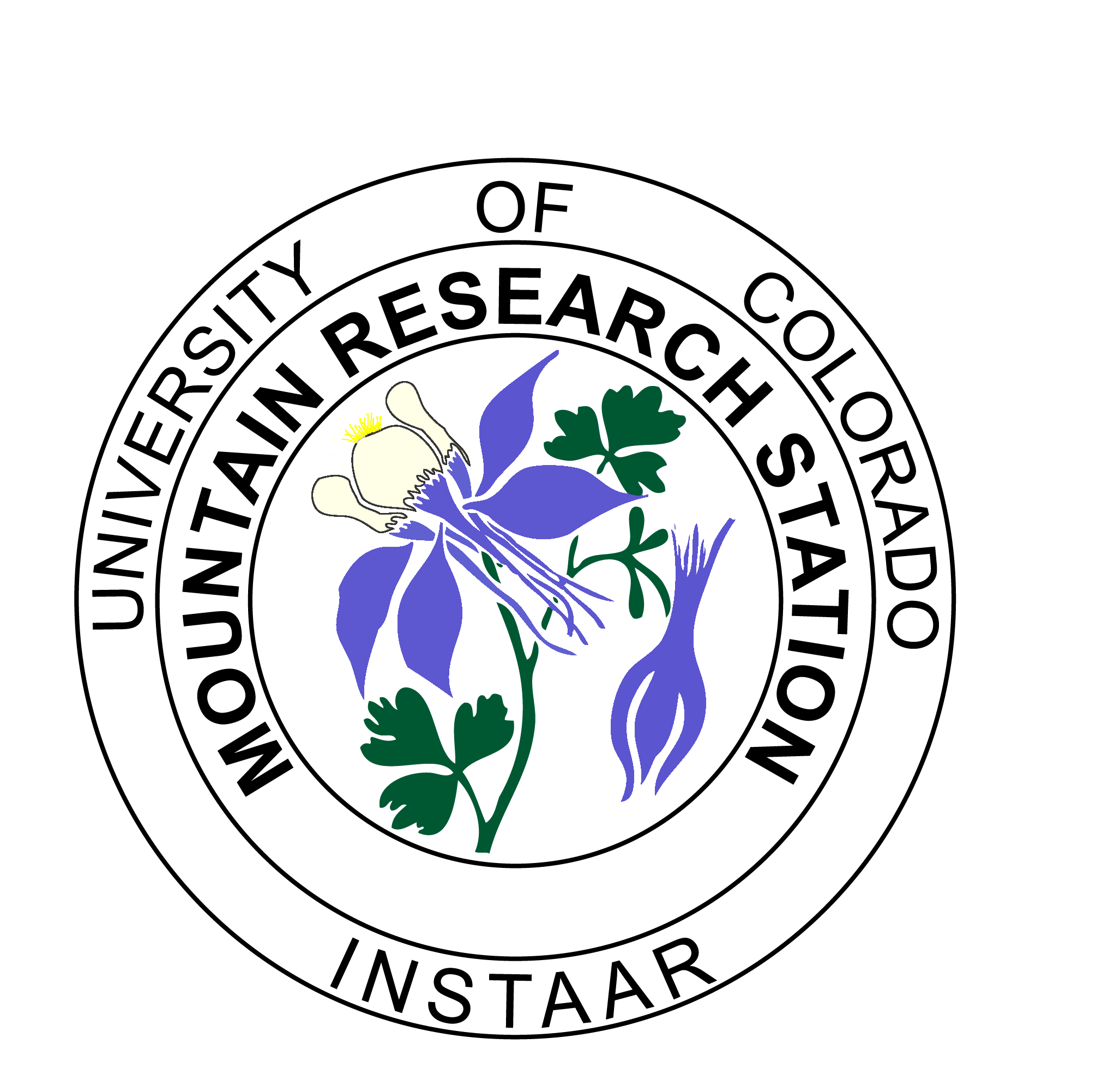
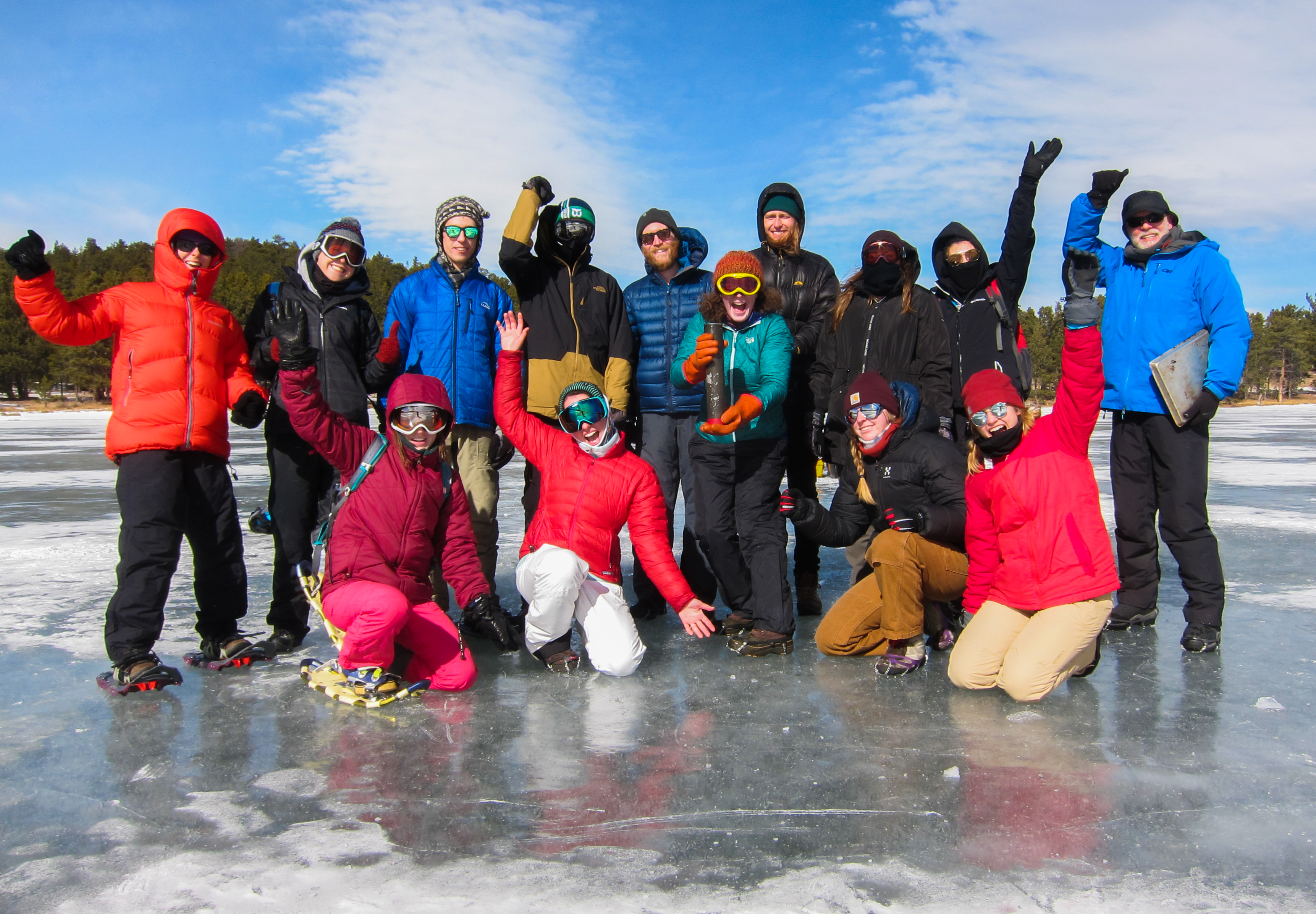
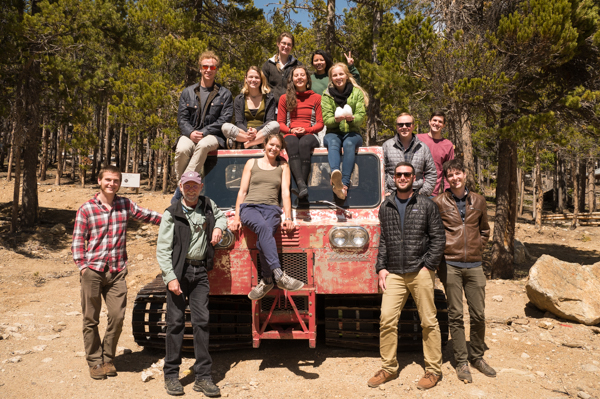
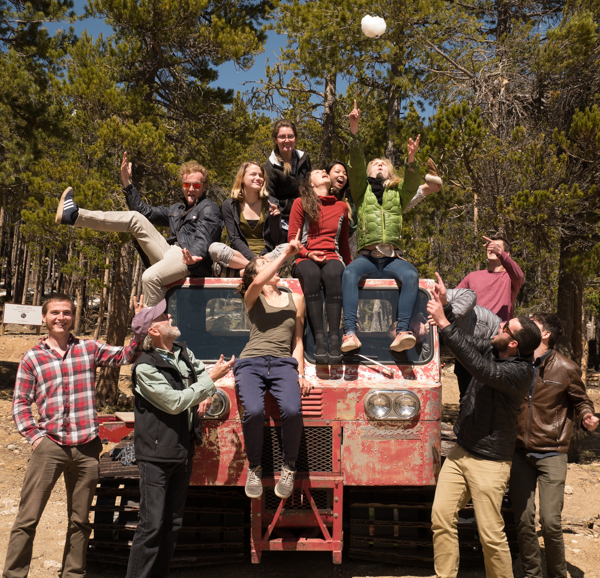
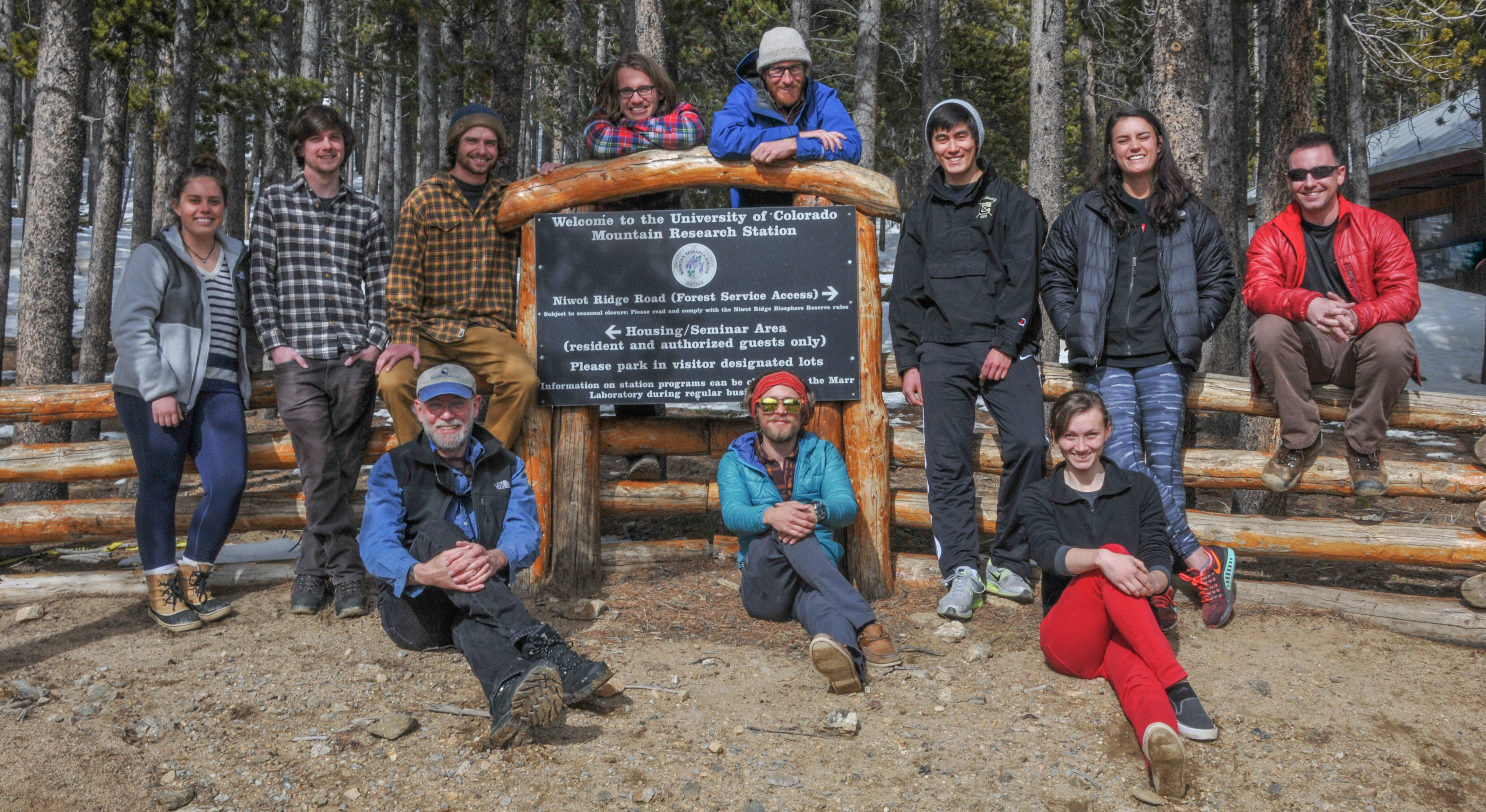
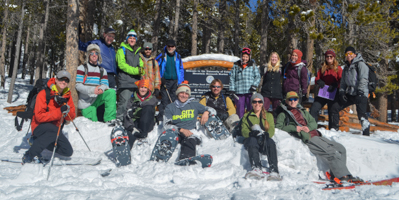
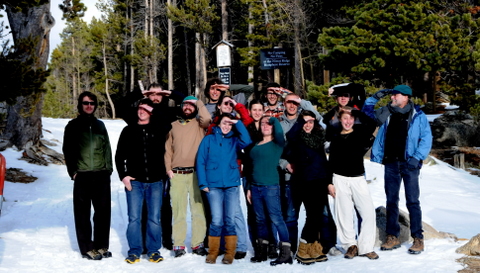
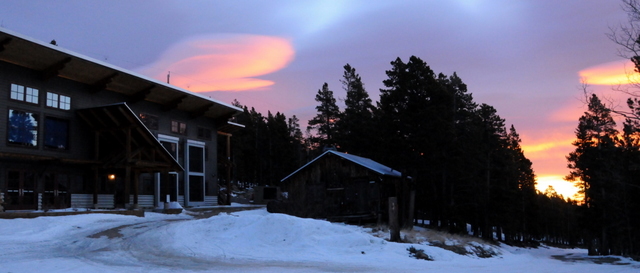 Moores-Collins
Science
Lodge
Moores-Collins
Science
Lodge 
